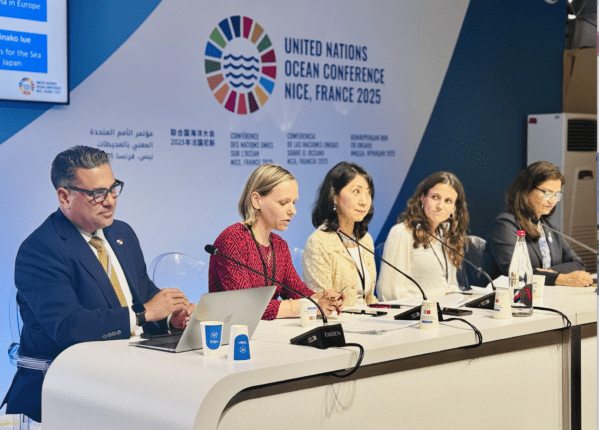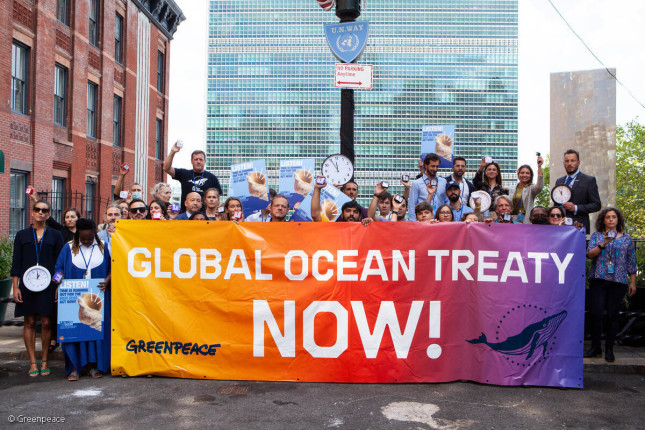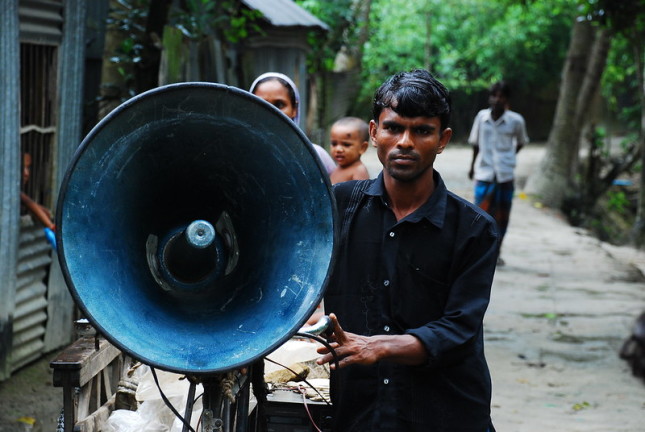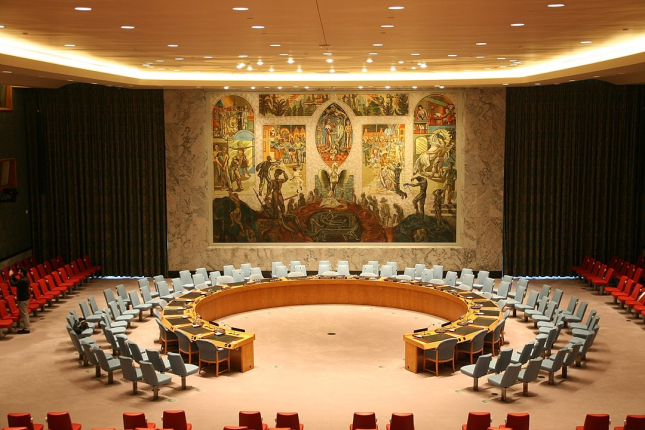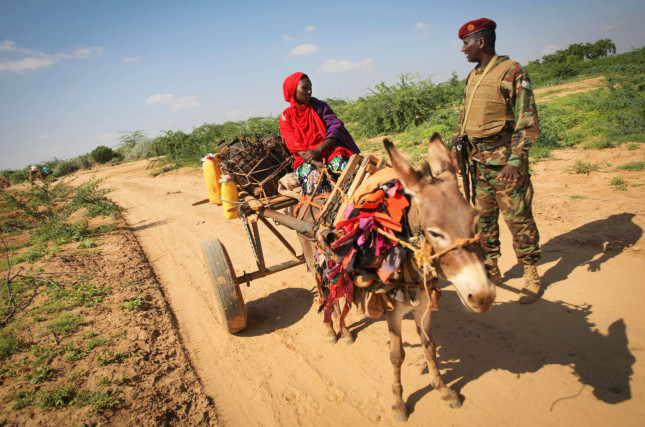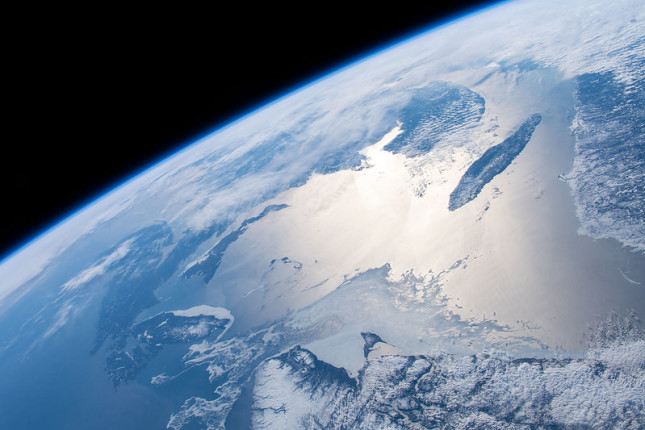-
Environmental Security Weekly Watch: October 20-24, 2025
›US Resistance Delays Vote on Shipping Decarbonization Rules (Mongabay)
The International Maritime Organization (IMO) has voted 57-49 to postpone the adoption of the “net-zero framework” until October 2026. As the shipping sector’s first binding deal on global greenhouse gas emissions, the agreement would have established progressively stricter intensity limits starting in 2028. The framework also imposed substantial fees for noncompliance, with high emitters facing up to $1.5 million in additional annual fees by 2035 that could raise fuel costs by roughly 20%. Low-emission vessels would be rewarded with tradable carbon allowances.
-
Three Takeaways From the Third UN Ocean Conference
›July 10, 2025 // By Carolyn Gruber
“There cannot be a healthy planet without a healthy ocean. It’s urgent business for us all,” said U.N. special envoy for the ocean, Peter Thomson, at last month’s UN Ocean Conference (UNOC).
Hosted in Nice, France, the conference brought together more than 15,000 political leaders, scientists, civil society, the private sector, academic institutions, Indigenous peoples, local communities, and philanthropic organizations with the goal of identifying innovative ways to finance and mobilize action for the ocean.
-
ECSP Weekly Watch | July 22 – 26
›
A window into what we are reading at the Wilson Center’s Environmental Change and Security Program
Worsening Health Conditions in War-Torn Gaza (BBC)
Water infrastructure in Gaza was already weak before the beginning of the war in 2023, but intensified conflict and siege of critical infrastructure the damage wreaked by Israel’s military forces on critical infrastructure (including water, energy, and food), has left 70% of the people in Gaza exposed to salinated and contaminated water. Traces of polio have been found in wastewater flowing both between displacement camp tents and in inhabited areas, and experts suggest that this water might be circulating.
-
Deadlock in the Negotiation Rooms to Protect Global Oceans
›For decades, western multinational companies have been profiting by exploiting plant, animal, or microbial genetic resources obtained from less developed countries. Take the neem tree, for example. Since the 1990s, international companies have registered more than 70 patents on products derived from India’s “tree of life.” Yet these patents have prohibited local people from using these trees (as they had for centuries) to make cosmetics, fertilizers, and medicines.
International companies have now turned their eyes to the high seas in a new hunt for genetic resources. Concerned they will be left out of the potentially profitable patents once again, developing nations are demanding equitable use and benefit sharing of genetic resources in ongoing global ocean treaty negotiations.
-
United Nations Advances Strategic Foresight: Breakdown or Breakthrough Scenarios?
›
Last September, Secretary-General António Guterres outlined the United Nation’s Our Common Agenda in a speech to the General Assembly. His remarks focused on the future of global cooperation for the next 25 years. It was imperative, he messaged, to recognize that our accelerated interconnectedness, and the formidable challenges we all face, can only be addressed through a reinvigorated multilateralism, with the United Nations at the core of collective member efforts. We must think big, act swiftly, and work effectively, he said, to reshape how we move forward today to achieve the goals of the UN declaration commemorating the 75th anniversary of the United Nations.
-
Russia’s ‘Nyet’ Does Not Mean Climate Security Is off the Security Council Agenda
›
On Monday, 13 December, Russia used its veto in the United Nations Security Council to block a thematic resolution on climate change and security put forward by Ireland and Niger. While the draft resolution contained specific actions, its main purpose was symbolic: to put the security implications of climate change firmly on the Security Council’s agenda, much as Resolution 1325 did with women, peace and security.
-
Why We Need a Climate Security Course-Correction for Stability in the Sahel
›
Not only is the Sahel highly vulnerable to the impacts of climate change, but it is also one of the regions where climate change is most likely to undermine security and trigger violent conflict. Now more than ever, climate security risks must be effectively integrated into stabilisation and peace operations in order to achieve stability in the region.
-
Elizabeth L. Chalecki, The Internationalist
An Internationalism that Protects: Why We Need to Reboot the Baruch Plan for Geoengineering
›March 26, 2021 // By Wilson Center Staff
New planet-changing geoengineering technology is available to help humanity combat an existential security threat. However, like atomic fission, this technology is not to be jumped at without caution.
This year is the seventy-fifth anniversary of the Baruch Plan. Almost no one knows this, or if they do, they probably don’t remember who Bernard Baruch was, or what his eponymous plan was for. But the Baruch Plan of 1946 was our first and last real attempt at world governance of nuclear weapons. Three-quarters of a century later, the ill-fated effort carries important lessons for addressing the crisis of climate change.
Showing posts from category UN.



